How to Install Ubuntu on Windows 10
Ubuntu on Windows is a Windows 10 app that runs on Windows Subsystem for Linux (WSL), which is an Application compatibility layer for running Linux operating systems natively on Microsoft Windows.
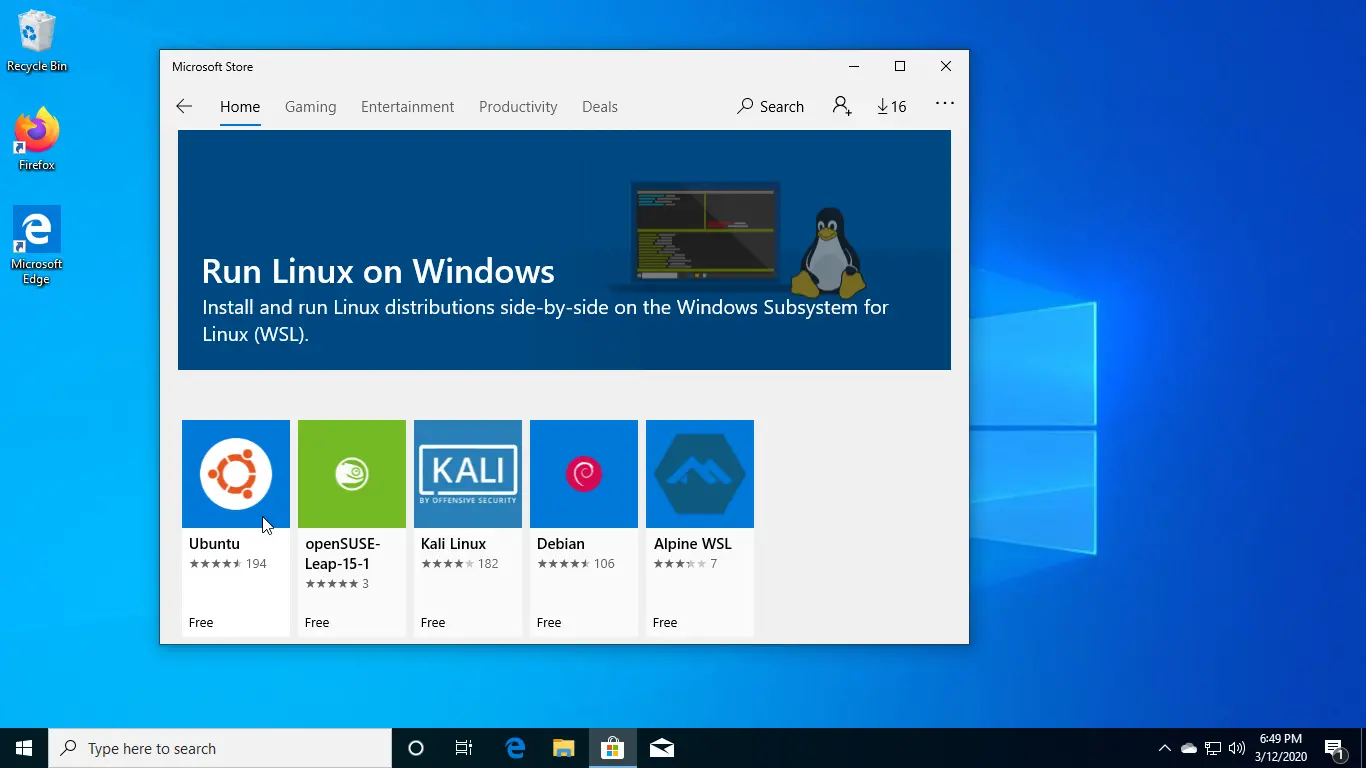
Installing Ubuntu on Windows 10 involves a two-step process: First we enable the Windows Subsystem for Linux feature from the control panel then we install the Ubuntu app from the Microsoft store.
Enable Windows Subsystem for Linux
First we must enable the WSL Feature. Open Control panel (Start button > Windows System), go to Programs category and Select Turn Windows features on or off.
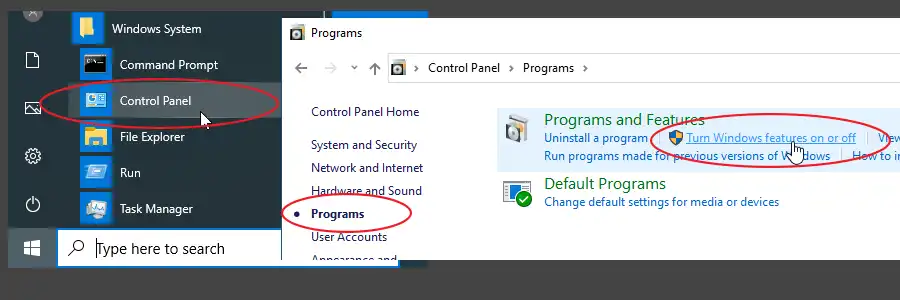
Find the feature called Windows Subsystem for Linux, then activate the checkbox and click the OK button.
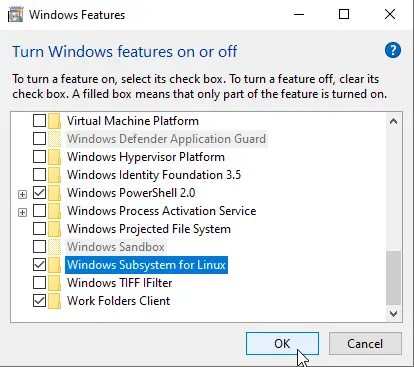
This will install the WSL feature and ask you to restart your PC at the end of the process. You must restart your computer before you use this feature.
Install Ubuntu Operating System
Once you are back in Windows, open the Microsoft store from the start menu and search Ubuntu.
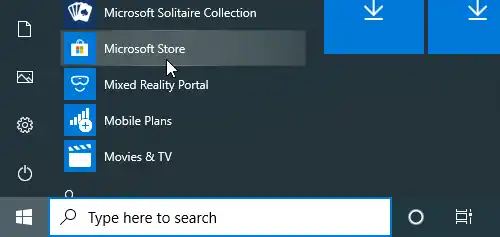
Select the top result, as shown in the following screenshot, and install the app once the detail page loads.

After that, a shortcut will be available in the start menu to open the new Ubuntu App.
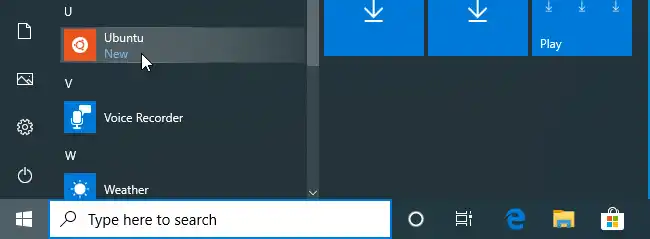
The first time you start Ubuntu, you will be prompted to create a username and password.

Congratulations! Now you have the access to the Ubuntu bash shell within your Windows 10 PC, Without a hypervisor or dual booting.
Run the lsb_release -a command to find out the version of Ubuntu that was installed.

Windows file system (C: drive) is mounted into the Ubuntu subsystem under /mnt/c mount point.

Now you have an Ubuntu development environment with access to the bash command line directly on Windows 10, without the overhead of running a virtual machine.
When you install Ubuntu on Windows, the most recent LTS version (20.04 LTS as for now) will be installed. Ubuntu 18.04 is also available as an app if you want.